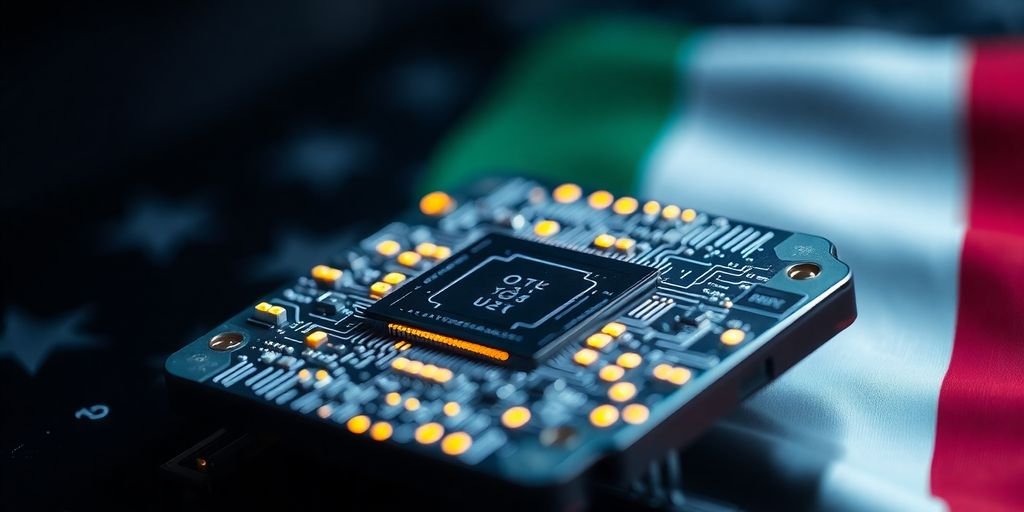The United States is reportedly nearing a preliminary agreement with the United Arab Emirates to permit the annual import of 500,000 of Nvidia’s most advanced AI chips starting in 2025. This significant deal aims to bolster the UAE’s data center infrastructure, crucial for developing cutting-edge artificial intelligence models.
US-UAE AI Chip Deal Nears Finalization
The U.S. and UAE are close to finalizing a preliminary agreement that would allow the UAE to import a substantial number of Nvidia’s advanced AI chips. This deal, expected to run at least through 2027 and potentially until 2030, marks a pivotal moment in global AI development.
- The agreement would permit the import of 500,000 Nvidia AI chips annually.
- The deal is set to begin in 2025.
- The duration is expected to be at least through 2027, with a possibility of extension to 2030.
Allocation and Impact
The proposed deal outlines a specific allocation for the imported chips, with a significant portion designated for the UAE’s leading AI firm, G42. The remaining chips would be distributed among major U.S. tech companies.
- G42 Allocation: 20% of the chips (100,000 per year) are earmarked for G42, a tech holding group with stakes held by Abu Dhabi’s sovereign wealth fund Mubadala, the UAE’s ruling family, and U.S. private equity firm Silver Lake.
- U.S. Companies: The remaining 80% would go to U.S. companies with extensive AI operations, such as Microsoft and Oracle, which may also establish data centers in the UAE.
- Compute Power Boost: The chips allocated to G42 alone would represent a tripling or quadrupling of the compute power previously available to the UAE under former U.S. regulations.
Strategic Implications and Opposition
This agreement has significant strategic implications, potentially positioning the Gulf region as a third global power center in AI, alongside the United States and China. However, the deal is not without its challenges.
- Global AI Landscape: If finalized, this deal, combined with other proposed agreements in Gulf states, could establish the region as a major player in the global AI competition.
- U.S. Concerns: The deal faces growing opposition within the U.S. government, partly due to concerns about controlling the flow of sophisticated semiconductors and preventing their diversion to countries like China, where they could enhance military capabilities.
- Recission of Regulations: The Trump administration recently announced plans to rescind regulations put in place by the Biden administration that restricted AI chip exports.
- Data Center Reciprocity: The preliminary agreement also includes a clause promoting data centers in the U.S., requiring G42 to build a similar facility in the U.S. for every one it constructs in the UAE.
Defining Advanced AI Chips
The specific definition of an "advanced AI chip" for this agreement is still under discussion. A separate working group will be established to define this, along with security requirements.
- The chips in question are the most advanced Graphics Processing Units (GPUs).
- Currently, this could refer to Nvidia’s Blackwell chips or their forthcoming Rubin chips, both of which are more powerful than previous generations.
This evolving agreement underscores the complex interplay of technology, geopolitics, and economic interests in the rapidly advancing field of artificial intelligence.
